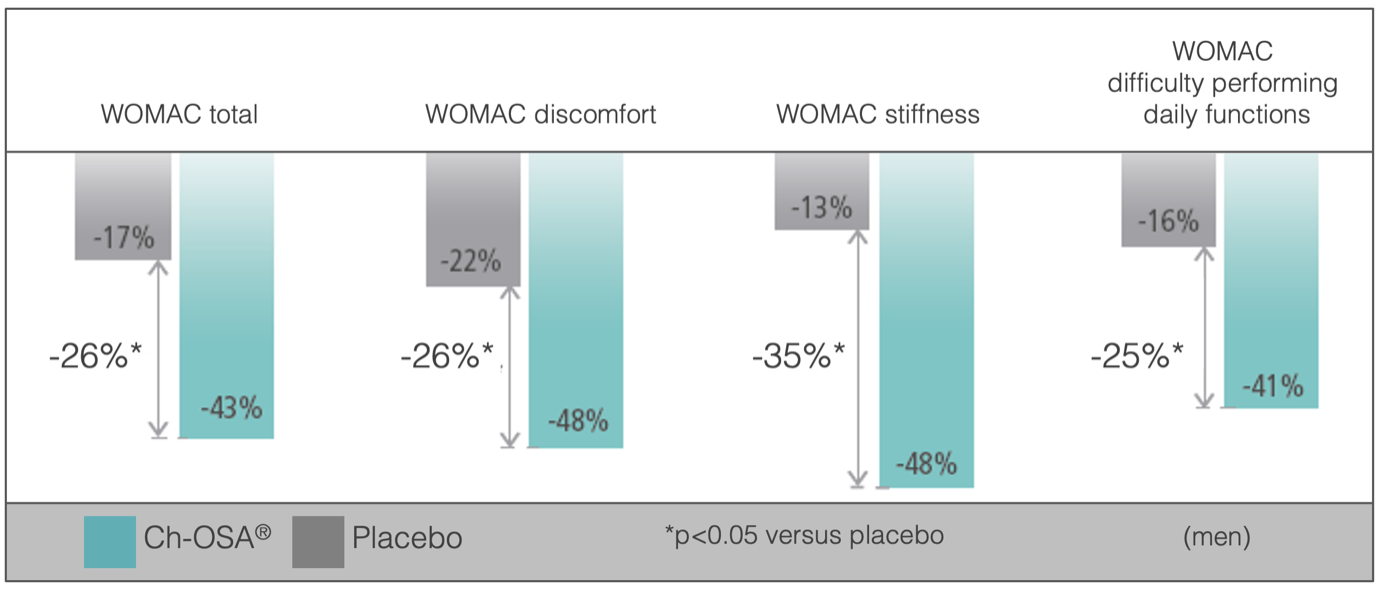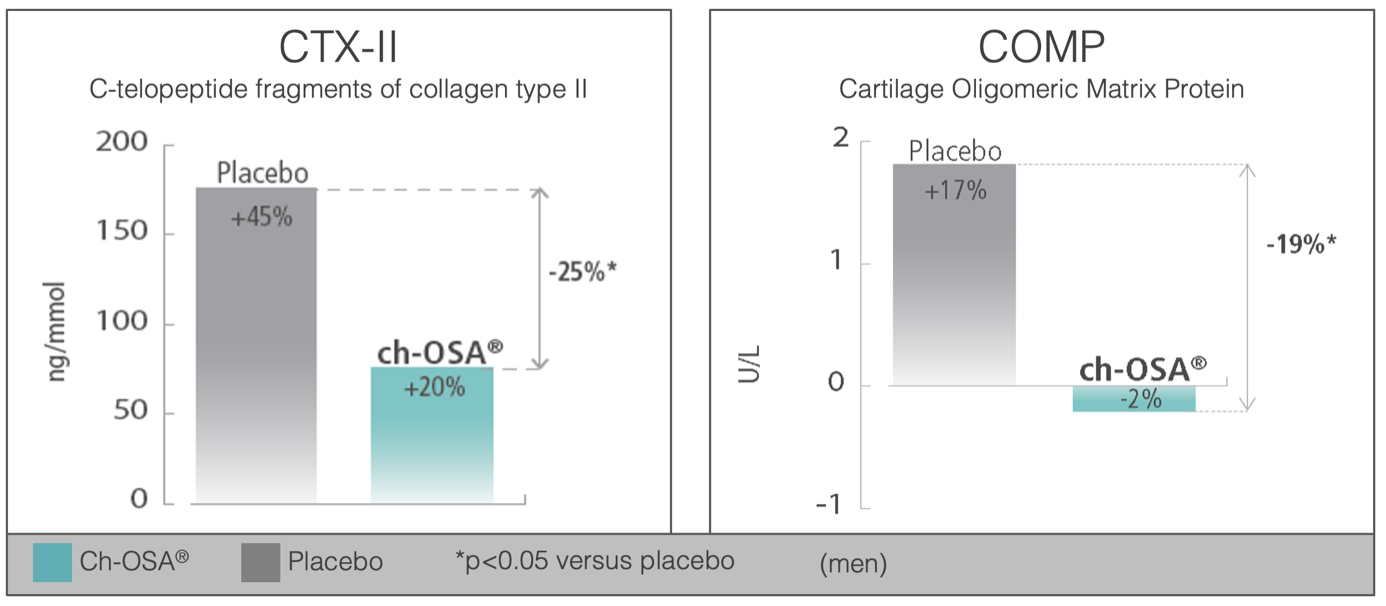Clinical Trials: Knee Osteoarthritis
This randomized, double-blind, placebo-controlled, multi-center study involving 166 patients with knee osteoarthritis took place over 12 weeks, and was led by Professor Piet Geusens of the Biomedical Research Institute at University Hasselt, Belgium. It was co-authored by K. Pavelka (Institute of Rheumatology, Prague); J. Rovensky (National Institute of Rheumatic Diseases, Slovakia); J. Vanhoof (ReumaClinic, Belgium); N. Demeester and M. Calomme (Research & Development, Bio Minerals, Belgium); and D. Vanden Berghe (University of Antwerp, Belgium). The study was peer-reviewed and published in the journal BMC Musculoskeletal Disorders in 2017.
The research aimed to study the efficacy of ch-OSA® on symptomatic osteoarthritis of the knee.
What we found
Researchers found a significant improvement in people taking ch-OSA® compared to people in the placebo group. After 12 weeks, people taking ch-OSA® reported:
- 26% less knee discomfort
- 35% less knee stiffness
- 25% better daily function
Summary
The improvement in cartilage degradation was also markedly better for people taking ch-OSA®. Biochemical markers of collagen degradation in the blood and urine were significantly lowered. After 12 weeks, researchers found that people taking ch-OSA® had:
- 25% less CTX-II (C-telopeptide fragments of collagen type II) than people in the placebo group
- 19% less COMP (cartilage oligomeric matrix protein) than people in the placebo group
Participants
The participants were 166 people (120 women and 46 men); between the ages of 50 and 75, with clear symptoms of cartilage loss in the knee.

Figure 1: The reported discomfort, stiffness, and difficulty performing daily functions of men with knee osteoarthritis; men who took ch-OSA® versus men in the placebo group. WOMAC is a widely-used and validated self-assessment measurement for how joint health impacts people.

Figure 2: The presence of biochemical markers of cartilage degradation in men who took ch-OSA® versus men in the placebo group.
Conclusion
The researchers believe the observed improvements in joint discomfort and mobility are due to the positive effects of ch-OSA® on collagen in cartilage and bone.